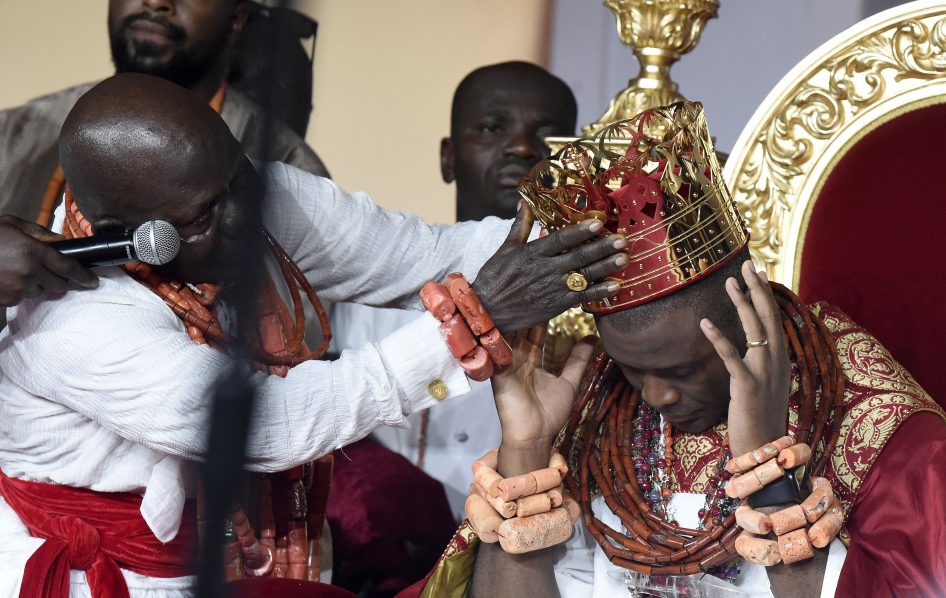
However, beyond the significance of the kings as the custodians of the cultural heritage of their people, little else seems to interest an average modern Nigerian in the institution of traditional rulers. And the reason is not far-fetched: in the context of modern democratic government, traditional rulers and the institution of monarchy seem to be in steady decline. That decline is further accentuated by the inglorious roles traditional rulers in Nigeria have played in politics with a history stretching from being accomplices in the slave trade, their dubious role in the colonial state, and to cultural imperialism in time and space. One critical consequence of this, however, is that it leaves the people without grassroots influence and an abiding local governance model. Even the local government that ought to be the tier of government that brings governance closer to the people is comatose.
And then a new Olu of Warri got coronated; and we need to rethink the significance of traditional rulership, national development, and inter-generational dynamics. The 21st Olu of Warri, Prince Utieyinoritsetsola Emiko—the Ogiame Atuwatse III—is not only very young at just 37, but he is also a Christian, demonstrated a very deep sense of history, so far, and a reflective understanding of Nigeria’s economic trajectory. And in this knowledge society of the twenty-first century, the new king breathes freshness that radiates this, according to a commentator, in terms of his age, his exposure, his educational pedigree, and stature. It is heartening to see a monarch that resonates with the Nigerian youth because he understands technology, entrepreneurship, and the role of women that departs from the patriarchal denigration of tradition. I come to this unique coronation from the perspective of a reflective question: In what deep sense does the ascension of Ogiame Atuwatse III, and his rousing coronation speech, signal a reawakening of national consciousness and stimulation of an inter-generational consciousness?
For all those with an abiding interest in cultural studies, and the cultural antecedents of the Yoruba nation, the historical trajectory of the Itshekiri nation should arouse deep interest. That interest has always been constant for me as I follow the political and cultural twists and turns of my Yoruba nation. The relationship between Itshekiri and Yoruba goes beyond the Itshekiri language being Yoruboid and is deeply affiliated with the Yoruba dialects from Ijebu to Owo. The Itshekiri also followed through with a political relationship with the Yoruba. In the 1959 pre-independence elections, the Itshekiri political class stood solidly with Chief Obafemi Awolowo and the Action Group. That relationship consolidated the cultural affiliation of the two nations. Unfortunately, the alliance between the two nations led to serious historical consequences. Those who opposed the alliance between Itshekiri and the Yoruba during those elections conspired and deposed the then Olu of Warri, Olu Erejuwa II, Wilson Gbesimi Emiko—the new king’s grandfather. The deposed king found refuge with the then Oba Akenzua II of Benin Kingdom. And both of them subsequently placed a curse on not only the Itshekiri nation but the whole of Nigeria. It is more than interesting that the two nations were not only bound by political affiliation but also spiritual debilitation.
Yoruba history also narrates the curse placed on the nation by Alaafin Aole who was betrayed by his lieutenants, and who condemned the nation to many years of self-inflicted treachery.
And so, the first royal act of the new king, with all historical and spiritual urgency, was the repealing of the curse that had supposedly undermined the development of the Itshekiri nation, and her significant place in the larger national dynamics of the Nigerian state. This tells a significant story in itself. And it is the narrative of the emergence of new and vibrant young rulers with the unstated mandate of redressing the denigration of the monarchy by those who subjected it to the base greed that undermined transformative politics. From the Ooni of Ife to Oba of Benin and the Obi of Onitsha, and from the former Emir of Kano to the recent Olu of Warri, we have new monarchs who are determined to bring the traditional rulership back into grassroots governance dynamics for the well-being of their people. And these new and youthful monarchs are determined to facilitate this transformation of the monarchy through anchoring either the cultural heritage or religious affiliations to modern technological and entrepreneurial knowledge. The former Emir of Kano, Lamido Sanusi, often challenged some of the theological interpretations of Islam that seem blatantly anti-developmental and inhumane. The Ooni of Ife has been calling on his entrepreneurial competence in managing his domain and the Yoruba. The Pentecostal affiliation of the new Olu of Warri was obvious in all his coronation actions and speech. In reversing the ancient curse, the Ogiame Atuwatse III, calls on the African and Pentecostal beliefs that sees a continuum between the physical and the spiritual. It seems clear, therefore, that the Christian king would be looking for a framework that allows him to fuse his faith and his culture into powerful development dynamics on behalf of the Itshekiri.
To be continued tomorrow.
Prof. Olaopa is a retired federal permanent secretary & Professor of Public Administration, National Institute For Policy and Strategic Studies (NIPSS), Kuru, Jos. [email protected]






